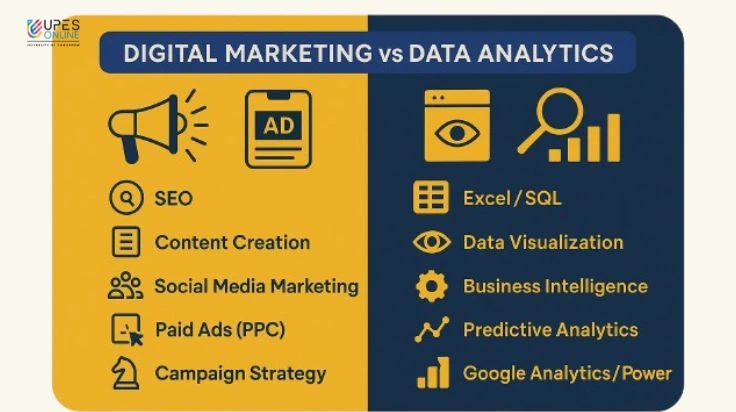Navigating the Challenges of Oil and Gas Industry in the 21st Century

Oil and gas management has always been a dynamic and challenging field, but the 21st century has brought unique challenges. From fluctuating oil prices to increasing concerns about climate change, oil, and gas managers must be prepared to adapt to the industry’s changing landscape.
With the rise in new-age manufacturing plants and industrial evolutions, the need to analyze and know how to manage the challenges faced by the oil and gas industry and hence, learn how to wisely prosper in oil and gas industry as you combat these challenges.
Challenges faced by oil and gas companies and industry in whole in the 21st century and the new trends and solutions emerging in response.
Fluctuating Oil Prices
Oil prices have always been volatile, but the 21st century has seen particularly dramatic fluctuations. These fluctuations can significantly impact oil and gas companies, affecting everything from investment decisions to day-to-day operations.
To navigate this challenge, oil and gas managers must stay up-to-date on global oil trends and be prepared to adjust their strategies accordingly.
They may also explore alternative energy sources, such as renewables, to diversify their portfolios and reduce their dependence on oil.

Increasing Environmental Concerns
One of the major problems in the oil and gas industry is environment. Recent years have seen an increase in environmental worries, notably regarding the effects of fossil fuels on the environment. As a result, the pressure on oil and gas businesses to lower their carbon footprint and embrace more sustainable practices has intensified.
To meet this challenge, oil and gas managers must know the latest environmental regulations and trends and be willing to invest in technologies and practices that reduce emissions and minimize environmental impact.
They may also explore new revenue streams, such as carbon credits, to offset their emissions and demonstrate their commitment to sustainability.
Technological Advancements
Technology is rapidly changing the oil and gas industry, constantly emerging innovations. From advanced drilling techniques to artificial intelligence and automation, these advancements are transforming how oil and gas companies operate.
To stay ahead of the curve, oil and gas managers must be open to new technologies and willing to invest in research and development.
Changing Consumer Trends
Consumer trends are also shaping the oil and gas industry. For example, demand for traditional fossil fuels may decrease as more people embrace electric vehicles and renewable energy sources. This could significantly affect oil and gas companies and their bottom lines.
Oil and gas managers may need to explore new business models or revenue streams to respond to this trend. For example, they may need to move toward cleaner energy sources or invest in technologies supporting electric vehicle infrastructure.
They need to focus on building stronger relationships with consumers and promoting the environmental benefits of their products.

Geopolitical Instability
Geopolitical instability can majorly impact the oil and gas industry, affecting everything from supply chain management to investment decisions. For example, conflicts and political changes in major oil-producing regions can lead to supply disruptions, price spikes, and increased risk for companies operating in those regions.
To navigate this challenge, oil and gas managers must be aware of geopolitical risks and have strategies to mitigate them. This may involve diversifying supply chains, building solid relationships with local stakeholders, and investing in risk management and security measures.

Growing Competition in the Industry
Although there has always been intense competition in the oil and gas sector, the 21st century has seen the entry of new firms, such as startups and renewable energy corporations.
This has created new challenges for oil and gas managers, who must be prepared to compete in an increasingly crowded market.
To succeed in this competitive landscape, oil and gas managers must be strategic and proactive. For example, they may need to explore new markets or expand their services to stay ahead of the competition.
Career Prospects and Learning Outcomes
Even with these difficulties, the oil and gas sector is attractive to those with the necessary qualifications. With the proper education and training, oil and gas managers can develop the expertise they need to navigate these challenges and succeed in their careers.
Upon completion of the program, graduates are well-equipped to succeed in various roles in the oil and gas industry, from operations management to strategic planning and business development.
Talent Management
Finally, talent management is a critical challenge in the oil and gas industry. As experienced professionals retire and the industry evolves, companies must be able to attract and retain top talent to stay competitive.
To succeed in this area, oil and gas managers must prioritize employee development and training, offering opportunities for upskilling and reskilling. They must also create an inclusive, engaging workplace culture that attracts and retains diverse talent. By investing in talent management, oil, and gas companies can build a strong workforce that adapts and thrives in a changing industry.
In conclusion, oil and gas management in the 21st century is challenging but rewarding. With the right skills, knowledge, and strategic mindset, oil and gas managers can navigate the industry’s challenges and succeed in their careers.
UPES Online Admission Enquiry
Recommended Courses




Latest Blogs

Digital Marketing vs Data Analytics: Which Career Should You Choose?
Battle of skills: Digital Marketing vs Data Analytics—compare 2025 salaries, skills & job roles. Expert tips to choose your future career path!
Read MoreJun 15, 2025 I 12 mins
Why Should I Choose UPES Online? 10 Reasons Why
Explore why UPES Online stands out in online education. Learn about flexible learning, UGC-approved degrees, expert faculty & credible online programs. Enroll now!
Read MoreAug 21, 2025 I 5 min
Can Distance Learning Fully Replace Traditional MBA Education? Challenges & Limitations
Find out if distance learning can truly replace a traditional MBA. Learn key challenges, limitations, expert opinion & insights.
Read MoreSep 2, 2025 I 4 mins
Online MBA Capstone Projects and the Importance They Hold
Know the importance of online MBA capstone projects. Learn how they build real-world skills, boost career opportunities, & add industry value.
Read MoreSep 7, 2025 I 5 mins
UPES Online MBA vs Other Top Universities: Why Students Prefer UPES
Compare UPES Online MBA with other top universities. Know why students prefer UPES online over others. Check fee, flexibility, faculty, ROI, & career scope.
Read MoreOct 1, 2025 I 7 mins






